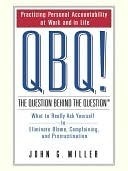What do you think?
Rate this book


157 pages, Kindle Edition
First published January 1, 2014
"Why doesn't the younger generation want to work?"
"When will we find good people?"
"Why aren't they motivated?"
"Who made the mistake?"
"When will they get ingaged?"
"How can I be a more effective coach?"
"What can I do to better understand each person I manage?"
"How can I build a stronger team?"